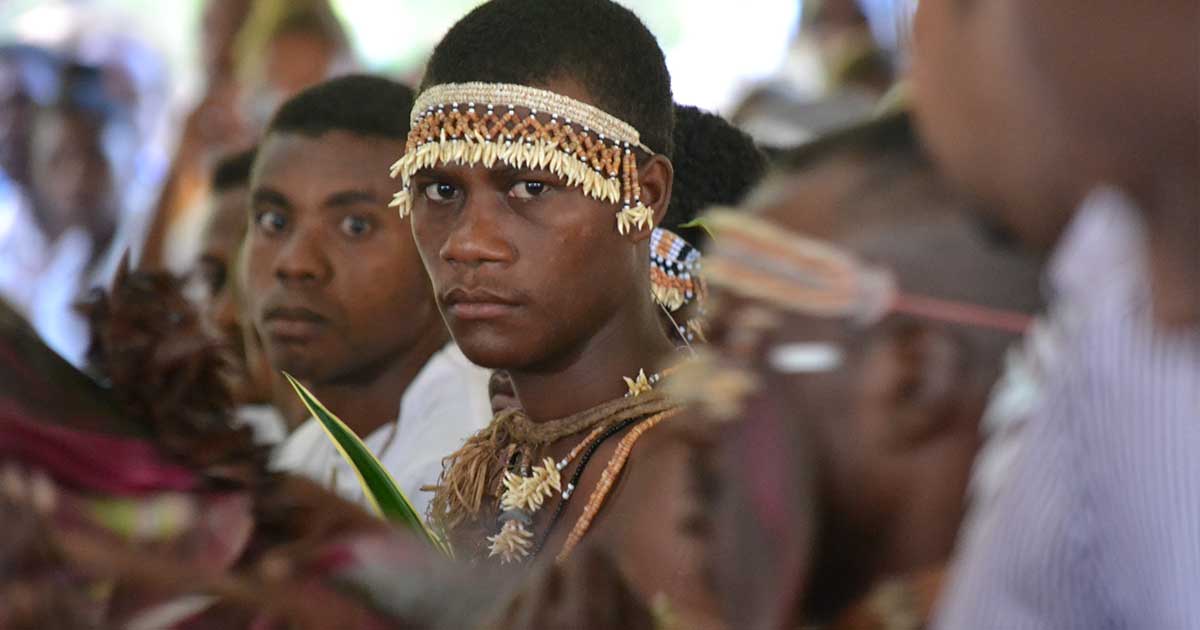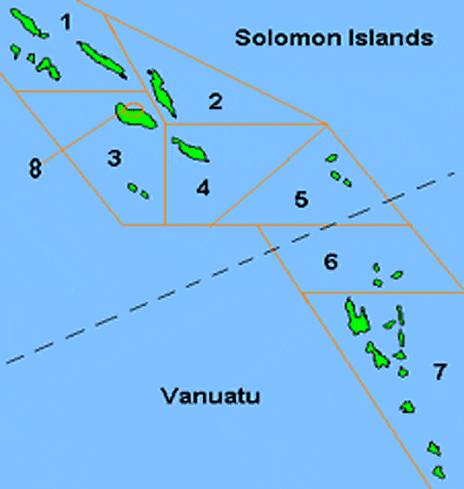
Anglicanism first appeared in Melanesia in 1849, through the missionary efforts of George Augustus Selwyn, first bishop of New Zealand. The Melanesian church remained a mission of the Church of New Zealand for 126 years, until 1975 when the Church of the Province of Melanesia was formed. Much has been written about the New Zealand-Melanesian mission, including The Story of the Melanesian Mission (1926) Project Canterbury, transcribed by the Right. Rev. Terry Brown, retired bishop of Malaita.
Today, the Anglican Church of Melanesia is a fully indigenous and autonomous province of the Anglican Communion, composed of eight dioceses in three southwestern Pacific countries: Solomon Islands, Vanuatu, and the French Territory of New Caledonia.

By far the single largest denomination in the Solomon Islands (34%) and of significance in Vanuatu and New Caledonia, the Anglican Church of Melanesia has more than 200,000 members, many under the age of 30. Almost half of the people in the Solomon Islands (population 500,000) are under 14 years of age.
Presently, the Most Rev. Leonard Dawea is Primate. He is joined by eight diocesan bishops and one assistant bishop, 600 active clergy, 16,000 Mothers’ Union members, 500 Melanesian brothers and novices, 54 St. Franciscan friars, 60 Melanesian sisters, 56 sisters and novices of the Sisters of the Church, and 40 provincial staff. Hundreds of catechists, youth, and other lay workers are responsible for leading daily worship in every village throughout the largely rural and often remote church.
The purpose of the Anglican Church of Melanesia is to be a faithful part of Christ’s body through exercising our baptismal ministries of:
- Spreading the Good News of God’s love in Jesus Christ
- Being like Christ in thought, word, and action
- Worshipping God in Spirit and Truth
- Demonstrating God’s love in responding to human needs in loving service
- Caring for our environment
The province’s local and international ministries are overseen by the Melanesian Board of Missions, a church body with specific programs in Youth and Young Adults, Evangelism, HIV and Aids, Women’s Empowerment, Environmental Justice, Literacy, and Peace and Reconciliation. The Board of Mission works closely with the Mother’s Union, Girls Friendly Society, Mission to Seafarers, the Religious Orders, and other Provincial program departments such as Education and Health Care.
Today, as in the past, the Anglican Church of Melanesia operates a number of preschools, elementary and secondary schools, and Bishop Patteson Theological College. The church is striving to build John Coleridge Patteson University, the first university based in the Solomon Islands. Not all children in the Solomon Islands have access to basic education and the Anglican Church of Melanesia is working to change this reality.
There is among the many ministries and people in leadership in the Anglican Church of Melanesia, a growing commitment to deeper self-reliance. As historic, external sources of financial support grow smaller and the church grows larger, greater emphasis is being placed upon sustainability through local resources. The church’s largest, and most long-term, commitment to deeper self-reliance and sustainability is its work with children, youth, and women. The Anglican Church of Melanesia in every diocese and parish supports these and other traditionally marginalized groups with pastoral and education programs suited to specific needs and challenges, including spiritual formation, literacy training, positive parenting, sanctuary from domestic abuse, prison and hospital chaplaincies, vocational training, and more.
